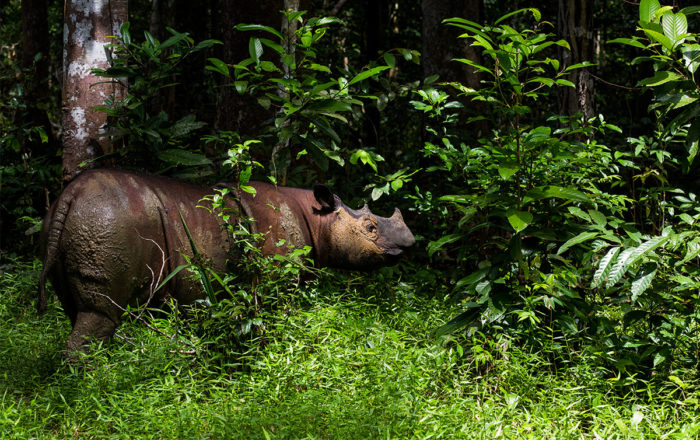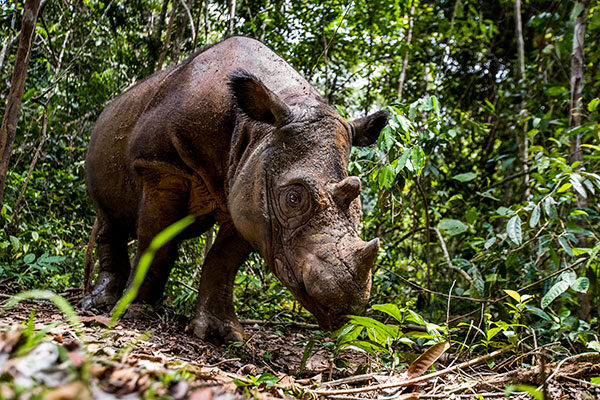A handful of companies make almost everything you see at the store. Whether it’s food, cosmetics, or medicine, these products require millions of tons of raw ingredients each year. One of those ingredients is palm oil — a main driver of deforestation.
Palm oil is in half of all packaged goods, from cookies to deodorant. Over half of the global supply comes from one place: Indonesia. This large Southeast Asian country has perfect conditions for growing the oil palm.
Palm oil is one reason that Indonesia lost a rainforest area the size of New Jersey in just 15 years. This rainforest is home to incredible animals like Sumatran rhinos and elephants. And like all rainforests, it is critical to the stability of our climate.

Commodities like soy, beef and paper also drive deforestation worldwide. They are why other major rainforests, like the Amazon, are rapidly approaching the point of no return.
The Biggest Culprits
The brands and banks that profit from “forest-risk” commodities share responsibility for their harmful effects on communities and the environment. More and more companies recognize this and are adopting “No Deforestation, No Peatland and No Exploitation” (NDPE) policies. Regardless, our report shows that 17 major brands and banks are failing to prevent deforestation and rights abuses. Here are some of the worst:
Procter & Gamble: F
Procter & Gamble (P&G) has ties to Indigenous land theft and violence in Indonesia through its suppliers with the Royal Golden Eagle group. Other P&G suppliers have used forced labor. Some have destroyed parts of the Leuser Ecosystem in Sumatra, one of the last places where orangutans, tigers, elephants and rhinos coexist in the wild. P&G refuses to adopt strong policies and systems to resolve these problems, or to suspend business with Royal Golden Eagle.
Mondelēz: F

We have repeatedly exposed Mondelēz for sourcing illegal palm oil connected to deforestation and destruction of peatlands in Indonesia’s Leuser Ecosystem. Other investigations tie Mondelēz to human-created fires in Indonesia to clear forests for oil palm. These fires produced a thick smog that put 10 million children at risk. Investigators also found links between Mondelēz and major deforestation in the Amazon. Mondelēz still lacks strong policies and systems to eliminate these problems in its supply chains.
Nissin Foods: F

This major instant noodle producer from Japan claims to have adopted NDPE policies, but serious loopholes in those policies allow problems to persist in its supply chains. Nissin Foods still does business with suppliers that are responsible for deforestation in the fragile Leuser Ecosystem, home to the very last Sumatran orangutans in the wild.
J.P. Morgan Chase: F

Chase has invested billions in paper, palm oil and other commodities linked to deforestation and rights abuses. Recently, Chase adopted an NDPE policy for palm oil in 2021, but ignored their lending in other forest-risk commodity sectors. Chase’s lending is a risk to the environment more broadly: Not only has Chase provided $6.9 billion in financing to companies driving deforestation across the tropics, it is the biggest financier of fossil fuels in the world.
MUFG Bank: F

Despite adopting an NDPE policy in 2021, this Japanese bank with global reach has continued to finance one of the most controversial companies in Indonesia — Indofood. This Indonesian food company has massive oil palm operations with links to deforestation and land conflicts. Indofood plantations are known to promote miserable working conditions, so much so that PepsiCo stopped sourcing palm oil from them in 2018.
How the Others Scored
Interested in how Unilever, Nestlé, PepsiCo, Kao, Ferrero and other brands and banks performed? Download our full report.













